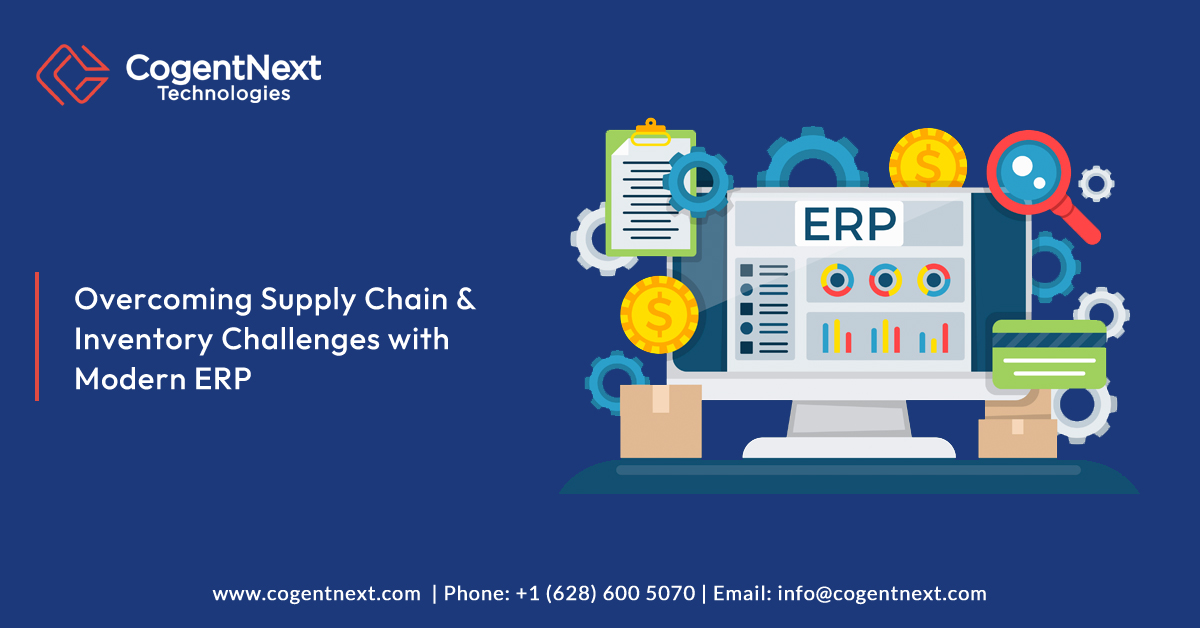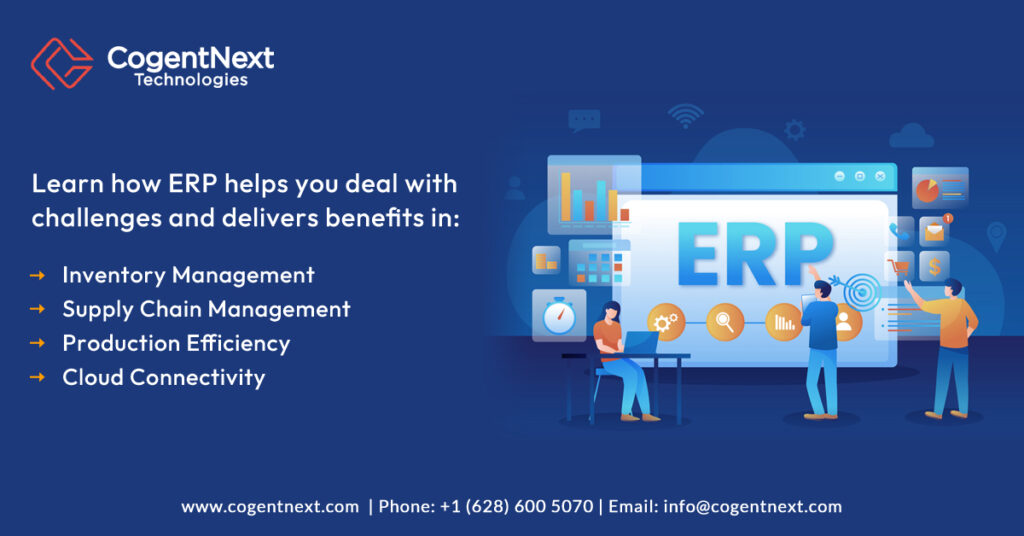
Improve Your Inventory and Supply Chain Processes with ERP
Keeping your inventory at optimum levels has become more challenging of late, especially with labor shortages and inconsistent supplier lead times. Fortunately, a modern ERP solution, specifically designed to streamline Supply Chain Processes with ERP, will help you face these challenges confidently while balancing productivity and product availability to keep your customers happy without overtaxing your resources.
In this article, we’ll examine common challenges that today’s manufacturers face and how modern ERP solutions help your company overcome them.
Manufacturing Inventory and Supply Chain Challenges
In ideal circumstances, manufacturers have an ample supply of the materials they need and can produce at a reasonable pace to keep up with demand. However, because of many long-standing issues on the global market, manufacturers have been hampered by at least three factors.
- Geopolitical Instability. Most notably, the COVID-19 pandemic enforced strict lockdown measures in many countries, forcing materials producers and manufacturers alike to halt operations. This resulted in reduced supply for many products and led to delays as demand again began to arise. Furthermore, political struggles between the East and the West have hampered the free flow of products around the globe.
- Raw Material Shortages. While product shortages of any kind can affect the supply chain, raw material shortages are the most critical. Imagine how many products depend on steel, for example! Such shortages are at the very foundation of manufacturing and can affect product availability across many industries.
- Labor Shortages. Even though automation technologies have reduced the need for laborers on the shop floor, the recent decline in manufacturing workers and the acute shortage of skilled technicians have made life difficult for manufacturing leaders. They are struggling to fill positions and acquire high-quality talent to press forward with company initiatives for innovation and production efficiency.
While these challenges can be daunting, many successful manufacturers today are overcoming them with a modern ERP solution that provides visibility into their entire supply chain and optimizes inventory levels. Learn more about the benefits.
How Manufacturers Benefit from Supply Chain Processes with ERP Solution

Enterprise Resource Planning (ERP) solutions have been around for decades. Today’s ERP solutions manage every aspect of your business, from finance to procurement, production, logistics, inventory, and more. Some solutions are designed to meet the needs of all businesses, while others have been customized for industry verticals, such as construction, wholesale distribution, manufacturing, and others.
A modern ERP solution with a central database to act as your single source of truth provides distinct advantages over legacy systems and multi-app solutions.
- Inventory Management. Modern ERP allows multiple stakeholders to collaborate with ease. Inventory levels can be automatically calculated and the resulting data distributed to everyone who needs it. This eliminates many of the mistakes introduced by manual processes and human error while providing accurate data that you can trust.
- Supply Chain Management. The longer you use your ERP solution, the more historical data it can leverage to help you identify times of high and low demand. Forecasting functionality tracks these fluctuations and combines them with current supply chain conditions through real-time supplier connections to help you plan, being proactive rather than reactive to ensure production continues uninterrupted.
- Production Efficiency. Modern ERP solutions are integrating advanced artificial intelligence to increase productivity and enhance the worker experience. In addition to helpful dashboards that help decision-makers monitor overall production performance, worker-centric functionality helps staff across the organization to better address customer requests and adapt their workflows to changing supply and inventory conditions.
- Cloud Connectivity. The leading ERP providers are investing heavily in cloud technologies. This enables staff and management alike to keep pace on the go, providing mobile device access with anytime, anywhere connectivity. Additionally, cloud platforms ease application and automation tools integrations, providing low- or no-code solutions to deliver custom solutions to meet your organization’s unique needs.
If your company is using a legacy ERP solution – or worse yet, no ERP at all – you’ll enjoy immense benefits from implementing modern ERP, from productivity boosts to tighter control over finances, inventory, and your supply chain.
However, there are many solutions to choose from. How will you know which one to choose? How will you ensure your choice will deliver a strong return on investment?
How CogentNext Helps Manufacturers Streamline Their Operations
At CogentNext, we have worked with large and small organizations across many industry verticals. Our consultants are well-versed in the strengths and weaknesses of the leading ERP solutions, such as Microsoft Dynamics 365 Finance, Microsoft Dynamics 365 Business Central, Sage 100, 300, 500, Intacct, SAP S/4HANA, and more.
Each company has unique needs and requirements. Contact us today to find out which solution best meets your needs and let us develop an implementation plan that will get you up and running as quickly as possible, so you too can reap the benefits of modern ERP.
By Chandra Subramanian | CogentNext Technologies
